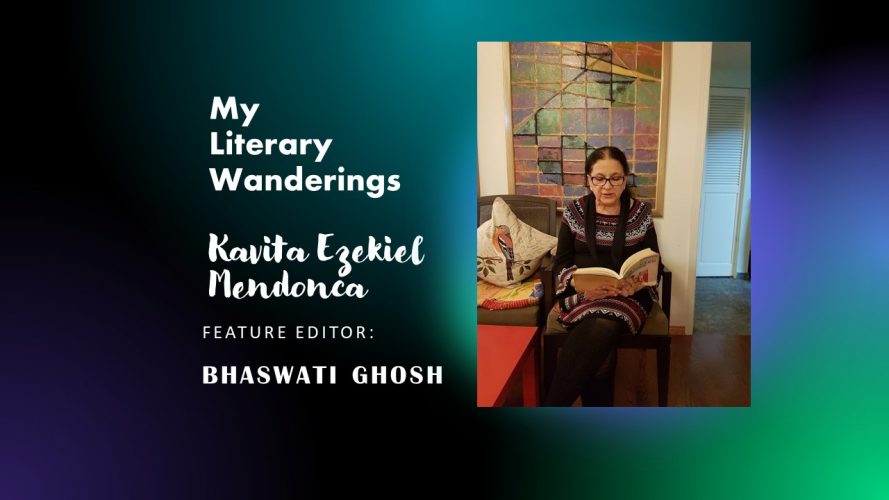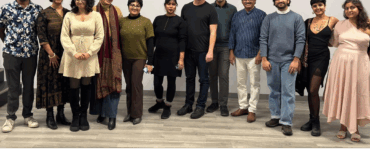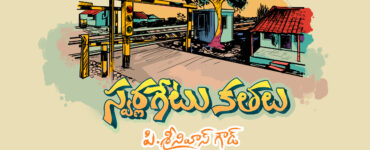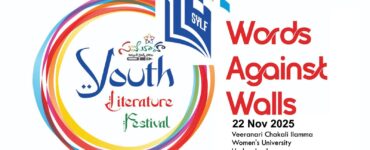The ground floor flat came with a garden outside from where you could smell the sea breeze. Our family of three was not the only one that had moved into our first home in Bombay. A different species of fish would soon decide to join us and call it home. These were the silverfish, insects with small fish-like bodies, silvery in appearance, with bristles on their tails and two antennae. They moved in swiftly and mercilessly.
My father’s love of books was responsible for the unwelcome visitors. They loved the warm, humid atmosphere in Bombay, and an open bookshelf was a silverfish feast with lots of paper and the glue that held their pages together. Knowing the kind of person my father was, the housekeeping details around thinking about what could damage his treasures would never have crossed his mind!
Family, books, and silverfish coexisted in the small space. There were books in all shapes and sizes everywhere, even in the clothes cupboards. You had to shake out the clothes before wearing them because of the silverfish! Just when you thought it was safe to put on that blouse for college, one last silverfish fell out. Our screams were simply met with an exhortation to calm down. ‘Peace at all costs’ and ‘Every creature has a right to survive,’ was dad’s mantra.
Was it possible to be at peace with those creepy crawlies around? My father continued his book-buying spree, while the silverfish became part of the family like exotic pets.
My mother became transformed into an interior designer. Not certain where she discovered a patient and obliging carpenter named Nair, who built everything to plan. As you entered the home, you were greeted by a small glass enclosed bookshelf. It housed the Encyclopedia Britannica, two large glossy volumes on Art, and a coffee table book about Carl Sandburg, among others. I loved Sandburg for his flowing blonde hair and because he played the guitar. Loved his poems too. Somehow, the article on the Titanic in the encyclopedia became a favorite, to be read and re-read when I was older. I could not believe that such a huge ship could sink. The twenty-four volumes of the encyclopedia were beautifully bound in black and gold and arranged meticulously in alphabetical order. They were our pride and joy.
A partition served as a divider between the living room and the bedroom, with two small cubbies on the living room side for my sister and myself to store our books. We would sit cross-legged on the chatai, reading books. Sometimes we read in the garden or sitting on the stone steps to the house. The clothes cupboards were on the other side of the partition. My sister and I slept in the custom-made bunk beds, often reading late into the night.
Books of poetry topped the list, of course, since my father was a poet. Children’s poetry books like The Owl and The Pussycat and The Night Before Christmas were made special because of the way he recited the lines. It was the recitation that inspired me to love poetry, more than the poems themselves. Fairy tales and other children’s stories were part of my childhood repertoire. Later, we passed these to some of my cousins. In school, English Literature classes were my favorite. Many of the poems we learned by heart – Matthew Arnold’s Sohrab and Rustom with its extended similes of twelve lines, and lengthy passages from Great Expectations by Charles Dickens.
At home, there were also the classics and self-help books like Dale Carnegie’s How to Win Friends and Influence People. The stories of successful people (not the rich) were to encourage us to lead fulfilling lives. Dad would place them on the center table after having read them himself. He had the practice of drawing a vertical line beside the passages he liked and a check mark beside the line. He would say, ‘When you have a moment, read a couple of the passages I have marked.’
My favorite extracurricular reading was the Malory Towers series by Enid Blyton. A classmate who lived on the fourth floor of a building right across the house had the complete set. When she finished reading one book, she would come to the window, call out to me, and wave the book as a signal that she was done reading. Sign language worked like Morse code. I would dash across the street, run up all four floors and bring the book home. Barbara Cartland was another favorite. I read the books lying on my stomach, on the divan in the living room. A friend with a membership in a nearby library allowed me to borrow the books on her account. All homework was put aside until the novel was finished. Nothing mother said about doing homework first mattered.
My other home was my grandmother’s home, called The Retreat, built by the British in 1894. I lived with my grandparents from the age of ten. The overflow of books from my first home were housed there. Three long wooden bookshelves stood in the long narrow passageway. They were open bookshelves, which was a mistake. The dust and silverfish also loved the books, many of which were autographed by poets and writers from all around the world. My father had travelled to several countries on invitation to read his poetry. I remember reading a book of poems autographed by Allen Ginsberg, the Beat poet. A favorite was The Beatles Book of Lyrics, purchased in New York by my dad and inscribed to me. (‘To Kavita, with faith in her potential’). La Peste by Camus, and Dix Contes de Maupassant took center stage. The pigeons flew in through the open passage and did their share of messing the shelves. A friend from college visiting the home declared he could not stand the dusty shelves and wiped them clean with a cloth!
In another room was a low glass bookshelf housing books of poetry my dada had authored and twenty-four books awarded to my father for standing first in the university for his Master’s degree. Each book was inscribed with his name for winning the Ramchandra Lagu prize in 1947. I still have one of the books – William Blake’s works. It survives as a precious memento.
BIO
Kavita Ezekiel Mendonca obtained her BA in English and French, an MA from the University of Bombay in English and American Literature, and a Master’s in Education from Oxford Brookes University, England. She has taught English, French and Spanish in colleges and schools in India and overseas for over four decades. Her first book, Family Sunday and Other Poems was published in 1989. Her Chapbook ‘Light of The Sabbath’ was published in September 2021.
*









Beautiful write up. Transports the reader to west coast.